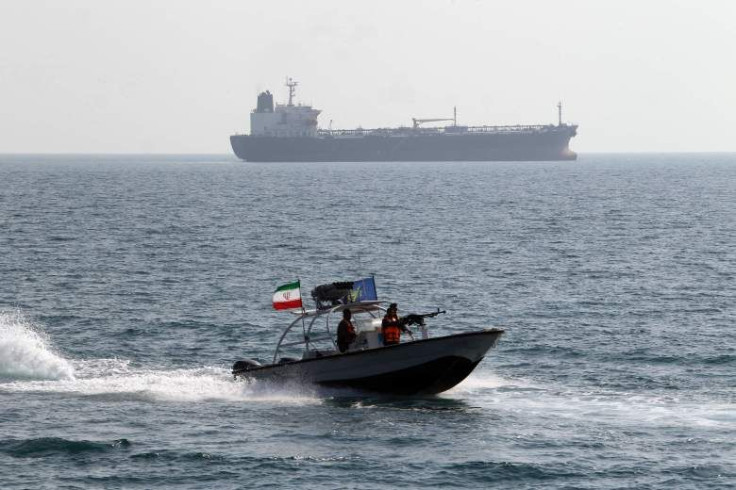US Navy Escorting UK Commercial Vessels In Strait Of Hormuz After Iran Ship Seizure

The U.S. Navy on Monday began escorting British commercial vessels through the Strait of Hormuz after Iran seized a cargo ship bearing the Marshall Islands’ flag in the waters last week, Reuters reported. American warships had been already been accompanying U.S.-flagged vessels crossing the same Iranian waterway since the incident amid heightened tensions in the region.
“They’ve asked if we would accompany their flagged vessels through the strait,” Army Col. Steve Warren, a Pentagon spokesman, said Monday. Pentagon officials said escorting U.S.- and British-flagged vessels through the narrow waterway along Iran's southern coast was a temporary policy.
Iranian naval forces on April 28 intercepted the MV Maersk Tigris in the waterway and ordered the Marshall Islands-flagged ship into Iranian territorial waters, Reuters reported. Iranian patrol boats fired warning shots across the ship’s bow after the crew initially declined the order. The Maersk Tigris, which was headed for a port in Dubai, United Arab Emirates, from Saudi Arabia, was then forced into the Persian Gulf port of Bandar Abbas, where the ship was being held.
Pentagon officials said the U.S. Navy began escorting U.S.-flagged ships in the strait because Iranian patrol boats had stalked a U.S.-flagged commercial vessel traversing the shipping channel a few days before the Maersk Tigris was seized.
Last month, an Iranian convoy of ships reportedly carrying weapons for Houthi rebels in Yemen turned back before facing U.S. Navy ships operating in the Gulf of Aden. The ongoing conflict in Yemen has escalated tensions between rivals Iran and Saudi Arabia and has also complicated U.S.-Iran relations.
The Houthi rebels, which have overtaken much of Yemen, are armed and financially backed by Iran’s Shiite government. Saudi Arabia and its allies, who support Yemen’s Sunni-led government, launched a campaign against the Iranian-backed rebels. The U.S. government has helped the Saudi-led coalition coordinate its airstrikes in Yemen and has warned Iran against shipping weapons to the Houthis. Meanwhile, U.S. President Barack Obama’s administration was seeking to sign a nuclear deal with the Iranian government.
© Copyright IBTimes 2025. All rights reserved.





















